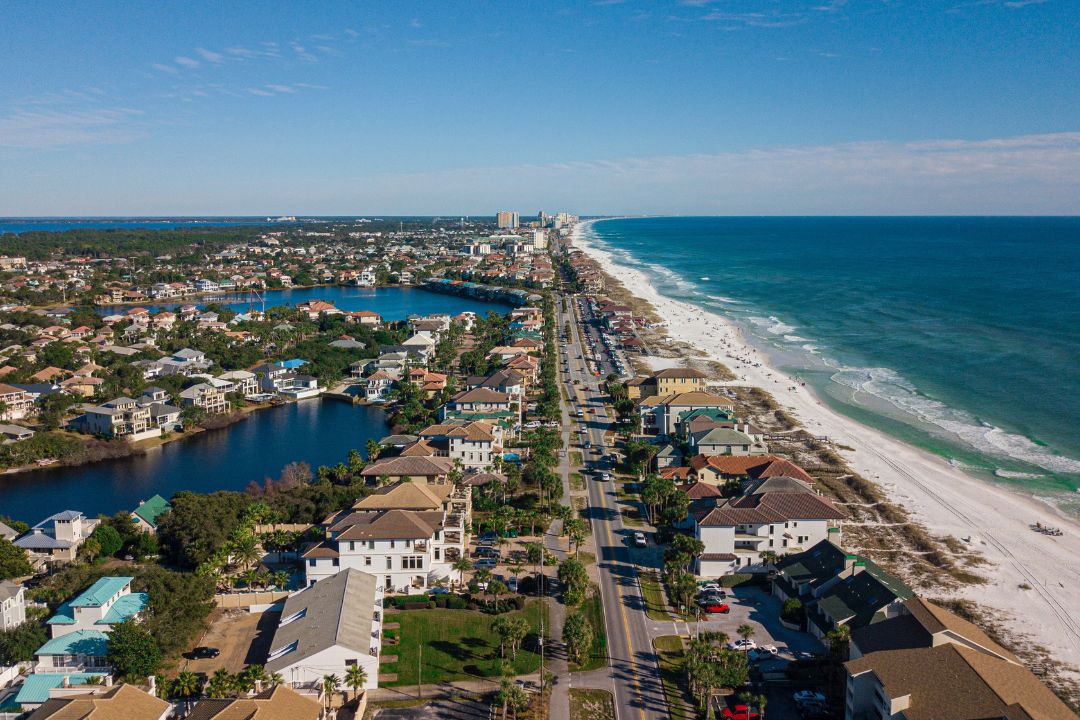 By Frank Curran: Principal and resident at The Fairways at Savannah Quarters, west Savannah’s finest Active Adult community.
By Frank Curran: Principal and resident at The Fairways at Savannah Quarters, west Savannah’s finest Active Adult community.
Would you describe yourself as an “energetic affluent”? According to a recent analysis of U.S. Census data, would-be retirees generally fall into two categories: those who wish to move closer to their children, and those called the “energetic affluent” who choose their retirement town based on available lifestyle choices.
If your primary consideration for retirement relocation is to be near your children, then this article isn’t for you (unless your children live in Savannah, GA). If, on the other hand, you fall into the “energetic affluent” category and can choose to retire to a town of your liking, here are a few things for you to consider.
Many retirees analyze their retirement according to two big variables: housing costs and taxes. If these are your main considerations, then you need to know that there are two problems with using only these criteria for making your determination: first, housing costs in any area are usually quoted as an average, and may not apply to the type of housing you’re looking for. Also, maintenance costs and amenities are never figured into housing cost averages. Secondly, low taxes alone don’t tell the whole story. Towns boasting low taxes may have crumbling infrastructure, deficit spending, and high unemployment. Such towns may have cut back on services or layed off half their police force. In such circumstances, taxes are bound to rise. Until they do, you won’t be very comfortable. Once taxes do rise, you won’t be very happy about it. So, don’t make the mistake of choosing a retirement town based on housing costs and taxes alone.
In order to get an adequate snapshot of the town you might want to retire to, you should add a third analysis criterion to your list: lifestyle support.
We’ve written often about choosing the right neighborhood for retirement: the importance of having an active social community, recreational opportunities, and access to maintenance services. But, let’s face it: if you intend to lead an active life after retirement you’re not going to spend all your days within the gates of your community. No matter how wonderful your retirement community might be, if it’s in the middle of nowhere or near a “one-stoplight” town, it won’t be long before you are restless and dis-satisfied with your choice.
For active retirees, a satisfactory retirement community requires more than just proximity to grocery stores, hair dressers, and doctors. You will also appreciate access to culture, history, sporting events, restaurants, nightlife, shopping, and religious activities. And when the time comes for you to leave town, you’ll want to have access to public transportation options.
Pardon me for bragging, but in my opinion Savannah is a great place to retire because it supports an active retirement lifestyle. Here’s why:
Let’s start with the weather. An active lifestyle will take you outside often, so good weather is a plus. Savannah’s average high temperature is 77F and the average low is 56F. Not too hot, not too cold. On average, it’s sunny more than 230 days a year and more than two-thirds of those days are without any sort of precipitation. If you like to play golf, hike, take walking tours, or hang out at the pool, this is perfect weather for doing so.
Cultural events? Savannah is home to twenty-one museums, half-dozen musical organizations, and five theater groups. Savannah has a diverse and growing performing arts scene that offers cultural events throughout the year.
Are you a sports fan? Do enjoy live games, the crush of the crowd, and a good hot dog? Then you’ll feel right at home in Savannah. You can enjoy live minor league baseball, basketball, football, hockey, and drag racing.
Of course, in a town nick-named “The Hostess City of the South” one would expect to find great restaurants and a diverse nightlife, and that’s just what you’ll find. Whatever your taste in food, you’ll find it in Savannah, from pub food and micro-breweries to haute cuisine. Like to dance? You’ll have plenty of options in Savannah’s late-night club scene, whether you lean toward ballroom dancing, boot-scooting or boogie.
With the largest urban historic district in the nation, Savannah is a history buff’s dream come true. Founded in 1733, it was America’s first planned city. Five historic districts have been designated in Savannah, and history buffs can spend countless days exploring the historic architecture, churches, cemeteries, homes, and fort. As much as there is to do in Savannah, there will still be times that you want to get out of town. When that time comes, you’ll be glad to know that driving isn’t your only option: Savannah’s airport is just 20 minutes away and is served by six major airlines. If you prefer to leave the driving to some else, there’s an Amtrak station and a Greyhound bus station. There’s a local port for riverboat cruises, and currently under discussion is a full-scale facility to dock international cruise ships.
OK, I admit it: I’m biased in favor of retiring in Savannah. But you have to admit, I have good reason to be. If you’re considering relocating for retirement, Savannah deserves a good, long look.



